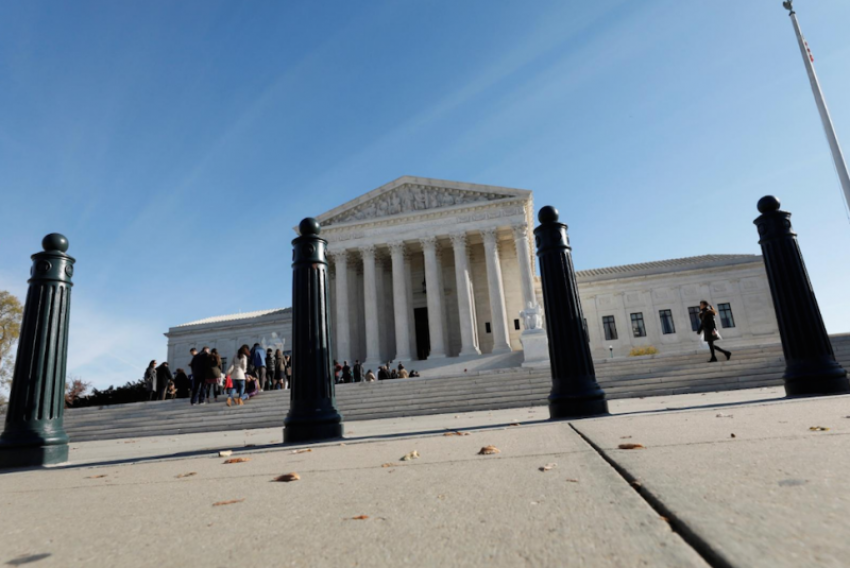Supreme Court vacates protection for Jewish university ordered to recognize LGBT club

The U.S. Supreme Court has reversed a temporary order that spared a New York-based Orthodox Jewish university from having to approve the establishment of an LGBT organization on campus while its case is adjudicated.
On Wednesday, the court left in place a New York state court ruling in a 5-4 vote, vacating an order from Justice Sonia Sotomayor last week that prevented Yeshiva University from having to approve the Pride Alliance group with the same privileges as other student groups under the New York City Human Rights Law.
New York law forbids discrimination based on sex and gender in public accommodations.
The opinion argued that it was too soon for the university to take its case to the Supreme Court, but the school could come back to have its case heard if lower courts don't offer a resolution.
"The application for stay pending appeal of a permanent injunction entered by the New York trial court, presented to JUSTICE SOTOMAYOR and by her referred to the Court, is
denied without prejudice to applicants again seeking relief from this Court if, upon properly seeking expedited review and interim relief from the New York courts, applicants receive neither," the order states.
While unsigned, Chief Justice John Roberts and Justices Sonia Sotomayor, Elena Kagan, Brett Kavanaugh and Ketanji Brown Jackson issued the decision.
Justices Samuel Alito, Clarence Thomas, Neil Gorsuch and Amy Coney Barrett dissented, arguing that the school's right to religious freedom justified its response to the student group.
"The First Amendment guarantees the right to the free exercise of religion, and if that provision means anything, it prohibits a State from enforcing its own preferred interpretation of Holy Scripture," Alito wrote in the dissent.
The conservative justice argued that New York denied the school this right, calling it "disappointing that a majority of this Court refuses to provide relief."
In a Friday statement to The Christian Post, Yeshiva University President Rabbi Ari Berman wrote that every university has the right to work with students to establish clubs that fit the school's faith tradition.
"Yeshiva University simply seeks that same right of self-determination," Berman stated.
"The Supreme Court has laid out the roadmap for us to find expedited relief, and we will follow their instructions."
"At the same time, as our commitment to and love for our LGBTQ students are unshakeable, we continue to extend our hand in invitation to work together to create a more inclusive campus life consistent with our Torah values."
The New York State Supreme Court ruled in June that Yeshiva University must allow YU Pride Alliance to be a formal student organization. The organization filed a lawsuit against the school last year.
New York Supreme Court First Judicial District Judge Lynn Kotler ruled that Yeshiva University leaders are "permanently restrained from continuing their refusal to officially recognize the YU Pride Alliance as a student organization because of the members' sexual orientation or gender and/or YU Pride Alliance's status, mission, and/or activities on behalf of LGBTQ students."
The judge concluded that the school's purpose is more academic in nature than religious, claiming that it serves as an "educational corporation" instead of a "religious corporation."
An Appellate Division of the New York State Supreme Court declined an appeal. The counsel for Yeshiva University argued that the school's adherence to the Torah's values prevented it from complying with the order.
The university sought relief from the U.S. Supreme Court. Last Friday, Justice Sotomayor granted a temporary reprieve, which remained in effect until the court decided it was too early to get involved in the case.
Sotomayor initially said that the Orthodox Jewish school did not have to approve the LGBT group, a decision that Berman praised as protecting "our religious liberty and identity as a leading faith-based academic institution."
"Make no mistake, we will continue to strive to create an environment that welcomes all students, including those of our LGBTQ community," Berman said. "We remain committed to engaging in meaningful dialogue with our students, Rabbis and faculty about how best to ensure an inclusive campus for all students in accordance with our Torah values."



























